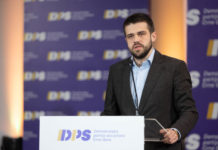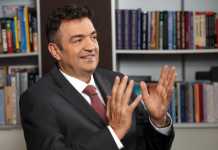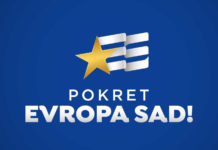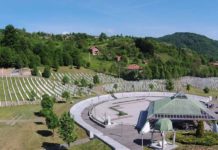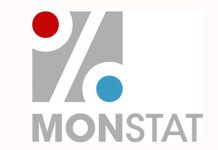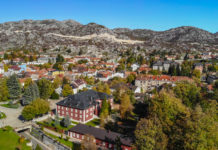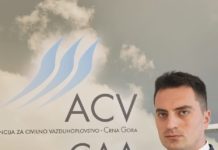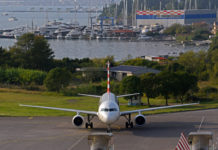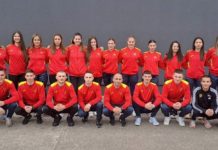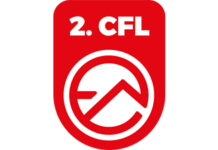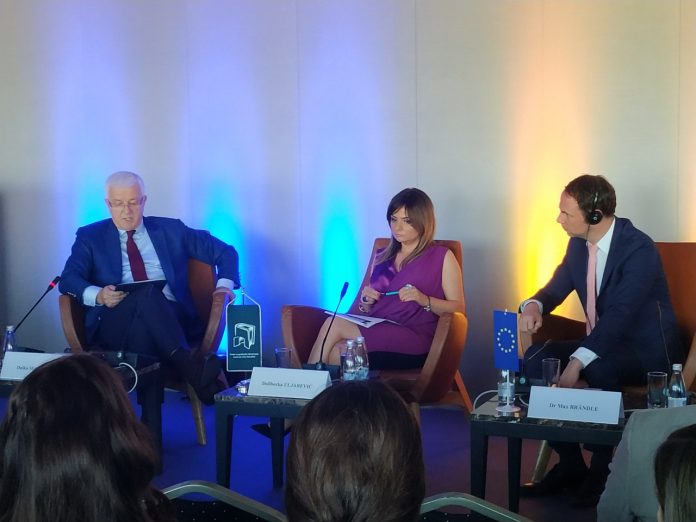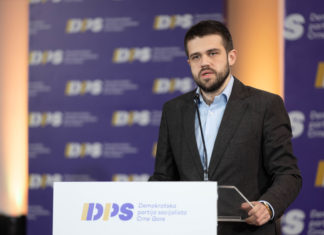Podgorica, (MINA) – Montenegro needs swerve in the EU negotiation process, it was heard during the conference organized on the occasion of seven-years since the beginning of the negotiation process, which took place in Podgorica on Friday.
The conference “Seven years of Montenegro’s Negotiations with the EU” was organized by the Civic Education Center (CGO) with support of the Ministry of Public Administration, German Friedrich Ebert foundation and the EU Integration Office.
Prime Minister Dusko Markovic said that Montenegro is consistently advancing towards the EU membership, and announced innovation and refreshment of the negotiation model.
He reiterated that the negotiations were initiated in accordance with a new model, which was for the first time applied to Montenegro.
He reiterated that Montenegro opened 32 out of 33 chapters, and that it already has support of 22 EU member states for opening the last one.
“Concerning the latest report, the government decided to innovate and refresh the negotiation model, in order to empower our activities, concretize our duties, but also responsibilities for the quality of the process”, Markovic stressed.
He added that cooperation with the NGO sector is an important part of the process, and announced that the government will organize meeting with all relevant NGOs, in order to restore trust and synergy in that key process.
CGO executive director Daliborka Uljarevic said that the latest EC’s report offered seriously shaken image of Montenegrin credibility in the negotiation process.
“We had limited progress in 28 chapters, and a number of chapters in which we had good progress decreased during the last year”, said Uljarevic.
She claims that Montenegro is far from being a leader in the process, and marked the executive power as a main culprit for that situation “which placed this process behind its partisan and partial interests”,
According to her, the legislative and judicial power also bear a large part of responsibility.
Uljarevic remarked that, regarding the results achieved in the first seven years of the negotiation process, she agreed with Markovic in his assessment that a serious swerve is necessary.
Head of EU Delegation to Montenegro Aivo Orav said that there is no compromise in the negotiation process with the EU.
He warned that lack of progress in chapters 23 and 24 can bring to falling behind, or halting the negotiations in other areas.
Speaking about the latest EC’s report, Orav said that it was a sort of an action plan for the government and other stakeholders- the opposition, civil society, business community and others.
He said that the trust in electoral system is what Montenegro misses, and reminded that the next elections are to be held in October next year.
According to Orav, it is a pity that “those who requested that process, and who presented the plan a year ago, are not ready to implement it anymore”.
Chief Negotiator Aleksandar Drljevic said that Montenegro is facing the question if it could have done more or better and if the EU accession dynamics is satisfactory since the start of the negotiations.
“It can always be better. Considering the context we are in, we can be satisfied with what have been done. Should we be absolutely satisfied and stop? Absolutely no”, said Drljevic, and announced that the government’s focus in the following period will be directed towards strengthening of the institutions and reaching concrete results.
Director of the Regional Friedrich Ebert Foundation Office Max Brandle said that the countries of Europe, whether they are the EU member states or not, depend on one another. Longer version of article is available on a link MINA ENGLISH SERVIS

